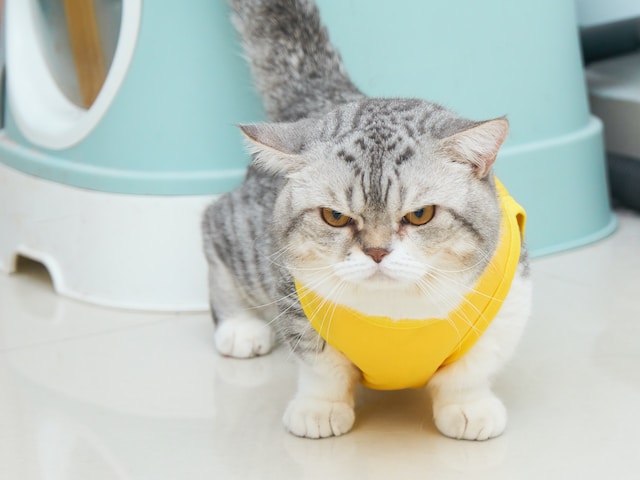
How to Care for Your Munchkin Cat’s Unique Body Type
Contents
- 1 Introduction
- 2 Munchkin cats are special.
- 3 They have more risk of osteoarthritis and disc disease than other cats.
- 4 They don’t always have the same litterbox preferences as other cats.
- 5 Munchkins may be prone to thyroid disease
- 6 You need to take extra care when it comes to your munchkin cat’s health!
- 7 Conclusion
Introduction
Munchkin cats are special. They have more risk of osteoarthritis and disc disease than other cats, and they may not always have the same litterbox preferences as other cats. Munchkins may also be prone to thyroid disease. But don’t worry! You can keep your munchkin cat healthy with a few simple precautions. Here’s how:
Munchkin cats are special.
They have a unique body type and personality, which means they may be prone to certain health problems.
- Body type: Munchkin cats are short-legged and have an unusually large head compared to their bodies. This can make them seem clumsy at times, but it’s not an issue if you take good care of your kitty!
- Personality: Munchkins are often described as playful and energetic–they love toys, other animals (including dogs), and people alike! They tend to get along well with children because they’re so friendly themselves; however you should still keep an eye on how much time kids spend playing with your munchkin so that everyone has fun without getting too tired out before bedtime or dinner time rolls around again later on during the day.”
They have more risk of osteoarthritis and disc disease than other cats.
Osteoarthritis and disc disease are two conditions that can affect Munchkin cats. Munchkin cats have a higher risk of developing these conditions because of their short legs and long backs, which puts strain on the joints. When you notice your cat is having trouble getting around or seems to be in pain, schedule an appointment with your vet right away so they can diagnose what’s going on.
If your cat has osteoarthritis or disc disease, the symptoms will vary depending on how severe it is. Some common signs include:
- Limping when walking around
- Difficulty jumping up onto things (like bedposts)
- Sensitivity around the tail base area
They don’t always have the same litterbox preferences as other cats.
Munchkin cats are very flexible and can adapt to many different litterbox types. It’s important to remember that no matter what kind of litterbox you provide, your munchkin will probably find some way to make it work.
Munchkins may also be more likely than other cats to use a covered litterbox or cat toilet, which are better for their unique anatomy.
Munchkins may be prone to thyroid disease
Munchkin cats are prone to thyroid disease, a condition that can cause weight gain, hair loss and skin problems. Thyroid disease also produces lethargy in the cat as well as an unwillingness to eat.
If you notice any of these symptoms in your Munchkin kitten or adult cat (or if she is showing other signs of illness), take her to see her vet immediately.
You need to take extra care when it comes to your munchkin cat’s health!
As a responsible pet owner, you should make sure that your munchkin cat is vaccinated. In addition to protecting against common feline diseases like rabies and feline leukemia virus (FLV), vaccines are also important for helping prevent the spread of these viruses within the community.
If your munchkin isn’t already spayed or neutered, this is another important step in caring for their health. Spaying and neutering can help prevent diseases like ovarian cancer in females and prostate cancer in males as well as reducing unwanted pregnancies.
You need to make sure that your cat gets enough exercise every day! This can include playing with toys or going outside on walks if possible; just make sure they get plenty of time exploring new environments so they don’t get bored indoors all day long! It’s especially important during kittenhood since young cats tend not get enough exercise due their small size relative
Conclusion
If you have a munchkin cat, there’s no reason to worry. They are just as easy to care for as any other cat, but they do require some special attention. If you want to keep your munchkin healthy and happy, make sure that they get plenty of exercise and playtime every day, as well as regular visits from their vet. Also, consider talking with an expert about how best to care for their unique body type!



Average Rating